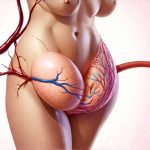Sleep disturbances are remarkably common, affecting millions worldwide, and often dismissed as simply part of modern life. However, for many individuals experiencing Irritable Bowel Syndrome (IBS), poor sleep isn’t just an annoyance – it’s a deeply intertwined component of their condition. The relationship between these two is complex and bidirectional: IBS symptoms can disrupt sleep, and lack of sleep can worsen IBS symptoms, creating a frustrating cycle that impacts overall quality of life. Understanding this connection is the first step towards better management for those affected.
This article will explore the intricate link between sleep disturbances and IBS, examining potential underlying mechanisms, common patterns observed in individuals with both conditions, and strategies for improving both sleep and gut health. It’s crucial to remember that individual experiences vary greatly, and seeking professional guidance from healthcare providers is essential for personalized care plans.
The Bidirectional Relationship
The connection between sleep and IBS isn’t a one-way street. Those living with IBS often report difficulty falling asleep, staying asleep, or experiencing unrefreshing sleep due to abdominal pain, bloating, urgency, and other gastrointestinal symptoms. Conversely, poor sleep can exacerbate IBS symptoms, leading to increased visceral hypersensitivity (an amplified perception of pain in the gut), altered gut motility (the movement of food through the digestive system), and changes in the gut microbiome. This creates a feedback loop where one problem reinforces the other.
This cyclical interplay makes it challenging to determine which came first – the sleep disturbance or the IBS symptoms. Often, both are present simultaneously, complicating diagnosis and treatment strategies. Addressing only one aspect rarely provides lasting relief; a holistic approach that considers both is typically more effective.
Common Sleep Disturbances in Individuals with IBS
Individuals with IBS frequently experience various forms of sleep disruption. Insomnia, characterized by difficulty initiating or maintaining sleep, is particularly prevalent. Beyond insomnia, other common disturbances include frequent awakenings during the night due to abdominal discomfort, early morning awakening, and restless legs syndrome (RLS), which can be exacerbated by nutritional deficiencies sometimes associated with IBS or related dietary restrictions.
The Gut-Brain Axis and Sleep Regulation
The gut-brain axis is a complex communication network linking the gastrointestinal tract and the brain. This bidirectional pathway involves neural, hormonal, immune, and microbial interactions. Disruptions in this axis are increasingly recognized as playing a significant role in both IBS and sleep disturbances. Alterations in the gut microbiome, for example, can influence neurotransmitter production (like serotonin, which plays a key role in both mood and sleep) and impact brain function, potentially leading to sleep issues.
Chronic inflammation, often present in individuals with IBS, can also disrupt the gut-brain axis and interfere with sleep regulation. Inflammatory molecules released by the immune system can affect the hypothalamus, a region of the brain responsible for regulating sleep-wake cycles. Furthermore, stress – a common trigger for both IBS symptoms and poor sleep – directly impacts this communication pathway.
Visceral Hypersensitivity and Nocturnal Symptoms
Visceral hypersensitivity, a hallmark of IBS, refers to an increased sensitivity to stimuli in the gut. What might feel mildly uncomfortable to someone without IBS can be intensely painful for those with the condition. This heightened sensitivity often manifests more strongly at night when cortisol levels naturally decline. Cortisol, a stress hormone, has anti-inflammatory and analgesic (pain-relieving) properties; as its levels decrease overnight, pain perception may increase, leading to awakenings and disrupted sleep.
Nocturnal diarrhea or urgency – common IBS symptoms – are also major disruptors of sleep. The need to repeatedly wake up to use the bathroom significantly fragments sleep, preventing individuals from reaching restorative stages. This can lead to daytime fatigue, impaired cognitive function, and a further worsening of IBS symptoms.
The Role of Diet and Gut Microbiome
Diet plays a crucial role in both IBS management and sleep quality. Certain foods can trigger IBS symptoms, leading to nocturnal discomfort and disrupted sleep. Conversely, dietary patterns that promote a healthy gut microbiome may improve both digestion and sleep. A diet rich in fiber (tolerated levels for the individual), fermented foods (like yogurt or kefir), and prebiotics (foods that feed beneficial bacteria) can support a diverse and balanced gut microbiome.
Research suggests that an imbalanced gut microbiome – known as dysbiosis – is associated with both IBS symptoms and sleep disturbances. Dysbiosis can contribute to increased intestinal permeability (“leaky gut”), leading to inflammation and impacting the gut-brain axis, ultimately affecting sleep quality. Identifying and addressing dietary triggers, along with supporting a healthy gut microbiome through targeted nutrition, can be an important component of managing both conditions.
Ultimately, navigating the complex relationship between sleep disturbances and IBS requires a multifaceted approach. This may involve lifestyle modifications such as establishing regular sleep schedules, creating a relaxing bedtime routine, and practicing stress-reduction techniques. Dietary adjustments tailored to individual sensitivities and gut health support are also beneficial. Most importantly, seeking guidance from healthcare professionals – including doctors, gastroenterologists, and potentially sleep specialists – is crucial for developing personalized strategies that address both the gastrointestinal and neurological aspects of this intertwined condition and improve overall well-being.


















